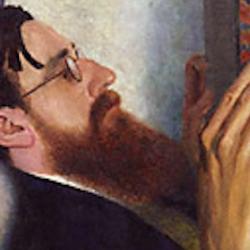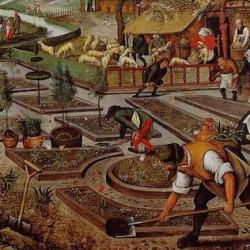In the final chapter of his magisterial The Mind of Egypt, Jan Assmann sketches out the path by which Egypt left its mark on the modern world.
Interest in Egypt surged in the Renaissance, as “newly discovered manuscripts were hailed as the rediscovery of Egyptian wisdom” (427), but it was Hebraists who did the most systematic work on Egyptian civilization, partly in an effort to tease out the implications of Acts 7:22’s reference to Moses’ instruction in the wisdom of Egypt.
Through the work of John Spencer, Ralph Cudworth, John Toland, and William Warburton, European thinkers developed an account of ancient Egyptian theology and religion that lent itself to the obsessions of the age. Spenser argued that Moses borrowed virtually the entirety of his religion from Egypt, and Cudworth and Warburton claimed that Egyptians venerated the One Supreme Being under the guise of various gods. Especially in the Spinozian circles of the “radical Enlightenment,” with its complex interconnections with freemasonry and other secret societies, Egyptian wisdom became the alternative to Christendom.
Assmann writes, John “Toland’s theories were highly instrument in the emergency of Freemasonry, which originated in London around 1700 and made the ‘Sponozian’ version of Egyptian mystery religion central to its own system of mysteries.” Freemasons were attracted to the esoteric character of Egyptian religion, which they reproduced in their owns secretive rites. Treatises on ancient Egyptian mysteries were written by Ignaz von Born, the “master of the Viennese lodge to which Mozart and Haydn belonged” (429). Karl Reinhold write a treatise on The Hebrew Mysteries of the Old Religion of Freemasonry in 1788 under his Illuminati pseudonym, Brother Decius (429).
Egyptian religion thus “became a precursor of the hotly debated religious ideas that were espoused by the champions of the Enlightenment and later elevated to the level of a state religion by the French Revolution. Egyptian religion . . . was conceived as a religion of Reason and Nature. With no recourse to revelation and guided by reason alone, the Egyptians had arrived at the same notion of the deity as Spinoza and Moses (properly understood)” (430). It seemed to provide ancient precedent for the Enlightenment “creed of tolerance” (431).
Beethoven thought so. On his desk was a framed copy of some lines he had copied from Schiller, then thought to express the wisdom of Egypt: “I am what is. I am all that is, that was, that shall be; no mortal has ever lifted my veil. He alone is of himself, and to this One all things owe their being” (431).















